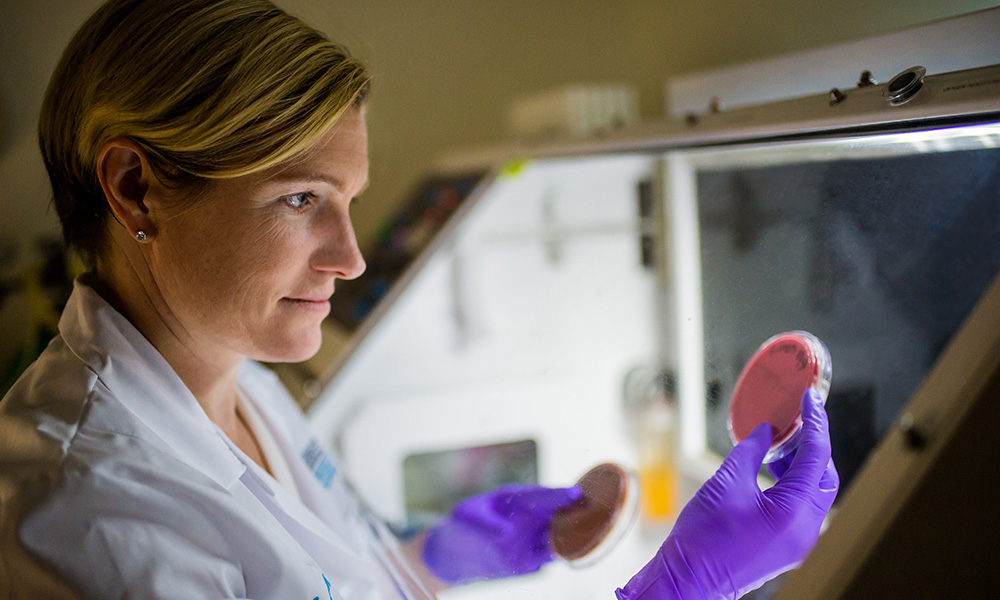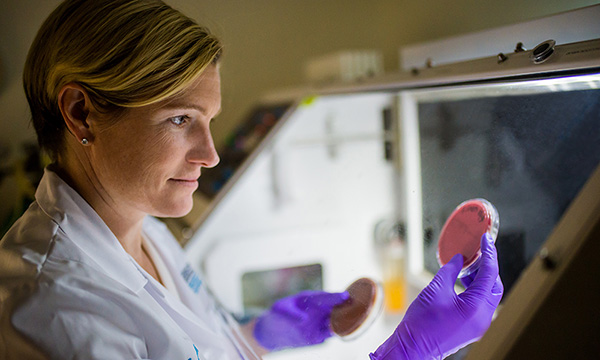Healthy Brain and Child Development Enhanced (HBCD-E)
PI: Andrea Edlow, MD
Study contact: mgbhbcd@mgb.org
This study is part of a national consortium following 7,500 mothers and their children across the U.S. to study how maternal exposures impact maternal, placental, and fetal immune programming, placental serotonin signaling, and long-term neurodevelopmental outcomes in children. Exposures of interest include environmental, substance use in pregnancy, stress, racism, and obesity. Children will receive neuroimaging and in-person behavioral assessments.
Biorepository to Understand Maternal Immunity and Pregnancy (BUMP)
PIs: Andrea Edlow, MD, and William Barth, MD
Study contact: mghpregnancybiobank@mgb.org
BUMP is a departmental pregnancy biorepository that aims to answer questions about maternal immunity and pregnancy complications.
Cellular Models of Fetal Neurodevelopment in Maternal SARS-CoV-2 Infection
PI: Andrea Edlow, MD
Study contact: COVIDPregnancy@partners.org
This project aims to create cellular models of fetal neurodevelopment after in utero exposure to maternal SARS-CoV-2 infection, linking these models to neurodevelopmental outcomes using EHR-based cohorts.
Maternal OMICS to Maximize Immunity (MOMI)
PI: Andrea Edlow, MD
Study contact: mghpregnancybiobank@mgb.org
A multi-omics investigation of pregnancy immune signatures across trimesters, both at baseline and after vaccination. The study uses scRNA-Seq, proteomics, and functional studies of immune cells from peripheral blood, cord blood, placenta, and breastmilk.
Novel MRI Assessment of Placental Structure and Function Throughout Pregnancy
PI: William Barth, MD
Study contact: wbarthjr@mgh.harvard.edu
Disorders of placental structure and function, such as preeclampsia, are significant causes of maternal and fetal complications. Currently, there is no technology that allows real-time monitoring of placental structure and function throughout pregnancy. This research group aims to develop novel MRI techniques, combined with advanced computational analysis, to capture regional placental structure and function.
Medication Treatment for Opioid-Dependent Expectant Mothers (MOMs)
PI: Sarah Bernstein, MD
Study contact: snbernstein@mgh.harvard.edu
A randomized trial comparing extended-release buprenorphine (BUP-XR) to sublingual buprenorphine (BUP-SL) for treating opioid use disorder in pregnant women. The study's primary goal is to evaluate whether BUP-XR is as effective as BUP-SL in preventing illicit opioid use during pregnancy, with a focus on both maternal and infant outcomes.
Improving Reproductive Health Outcomes in sub-Saharan Africa
PI: Adeline Boatin, MD
Study Contact: adeline_boatin@mgh.harvard.edu
This study aims to understand driving factors for cesarean section in sub-Saharan Africa and developing strategies to optimize use. This study also aims to use wearable digital technology to improve quality of peri-operative monitoring.
Measuring Early Pregnancy Glycemia and Its Impact on Adverse Outcomes (GO MOMs)
PI: Camille Powe, MD
This study examines the relationship between early pregnancy glycemic levels and the risk of gestational diabetes and other complications. These findings aim to set a new standard of care for diagnosing early pregnancy hyperglycemia.
Dexcom G7 in Pregnancy
PI: Camille Powe, MD
Study contact: amedinabaez@mgb.org
This study aims to assess whether a continuous glucose monitor (CGM) called the Dexcom G7 can be used to test for gestational diabetes.
Pregnancy Data Repository to Assess Management of Type 1 Diabetes with Diabetes Technology (PRAM T1D)
PIs: Camille Powe, MD, and Lydia Shook, MD
Study contact: cmichalopoulos@mgh.harvard.edu
This study collects real-world data from pregnant Type 1 diabetic patients using continuous glucose monitors (CGM) and survey responses. The goal is to compare glycemic, psychosocial, and clinical outcomes between patients using hybrid closed-loop devices and those who do not. The resulting publicly available database will support future discoveries related to Type 1 diabetes management in pregnancy.
Understanding the Prevalence of Iron Deficiency Anemia at Delivery
PI: Mark Clapp, MD MPH
Study contact: mark.clapp@mgh.harvard.edu
The objective of this prospective study is to identify the prevalence of iron deficiency (ID) and iron deficiency anemia (IDA) at the time of admission for delivery and evaluate symptoms associated with iron deficiency. The data from this pilot study will serve as the basis for a subsequent trial that will assess the impact of a novel protocol for both the screening and treatment of ID with or without anemia in the third trimester on the prevalence of IDA at delivery.
Bridges to Primary Care: Transforming Postpartum Primary Care Coordination for People with Chronic Conditions
PI: Mark Clapp, MD MPH
Study contact: mark.clapp@mgh.harvard.edu
This study aims to increase postpartum primary care engagement, quality, and experience by strengthening postpartum primary care coordination. The hypothesis is that strengthening postpartum primary care coordination will increase initial and sustained primary care engagement, improve condition-specific appropriate management, and improve patient experience, stress, and mental health.
Prospective Assessment of Uterine Scar and Placenta Accreta
PI: Christina M. Duzyj Buniak, MD, MPH
Study contact: cbuniak@mgh.harvard.edu
This study aims to investigate molecular variation in cesarean wound healing, including time course and predictive contributors to myometrial (uterine muscle) wounding healing and collagen formation following cesarean delivery.To observe if adverse cesarean-related pregnancy outcomes, particularly abnormal placental invasion as occurs in placenta accreta, are correlated with features of uterine scar, the trajectory of a woman’s reproductive lifespan, genetic variation or other factors.


